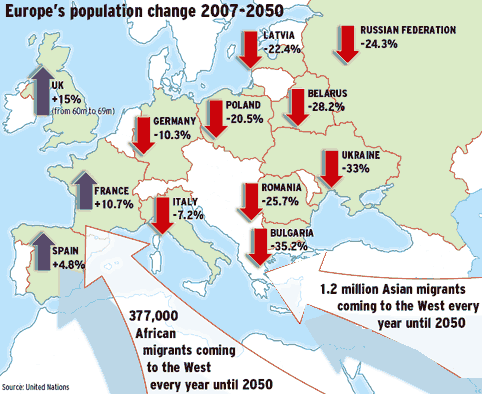Many of you have probably heard that China has decided to end their one-child policy that was controversially enacted in 1979. This is a response to the problem that the outgoing generation of elderly retirees and/or close to death is much larger than the incoming generation, with about “30 percent of China's population is over the age of 50." It’s simple, yet, cold math: have one child to replace one parent. But in a one-child policy system, you’re already behind one child to two parents.
South Korea is having a similar problem, in which women are having on average 1.19 children. It is part of a cultural shift from the baby boomer approach, which stressed having more children, with this ending when overpopulation became a bigger issue in the late 1970s. More women in the workforce (which is not a negative) have caused fewer women to want to have multiple children, or even any children at all.
There are still some countries that produce enough children to sustain. Specifically, developed countries like U.S., the average woman has 2.01 children, enough to sustain the one-to-one system of child and parent. Medicine has also allowed for a much higher survival rate of infants, which has caused the overpopulation problem that was feared forty years ago. This is not so much an issue of space, as it is an issue of resources, specifically jobs.
While in Europe, a very different issue is occurring. Countries like Poland, Serbia, Italy, Hungary, Germany, Austria, Denmark, Sweden, and Greece are all below the two-child mark in birth rates. Their population pyramids are all top heavy, with the majority of the population above age 45 to 50. There are some European countries that do not have this problem, like France and the UK, whom both have an appropriately bottom-heavy population pyramid. Others like Denmark and Sweden don’t have a top-heavy pyramid yet, but sustained course will inevitably cause problems in the future.
For a much deeper dive into the European situation, I highly suggest reading this article from The Telegraph. And all of this comes together when you consider the situation in Syria.
As many of you, no doubt, know Syria is currently engaged in a violent civil war, causing mass destruction and death while ripping apart cities with the violence. This has caused a massive refugee crisis which has caused a lot of controversy in global news and politics. There have been some countries that have gladly opened their borders, like Germany, but this at least partially due to the recognized population issue (which does not overtly diminished the good-hearted deed being done). Other countries such as Denmark have been overt about their unwillingness to help or house many, if any at all, refuges escaping from Syria.
CNN has managed to compile a list of friendly countries to the Syrian refugees, with the only non-friendly country making sense being Greece, which has struggled immensely with a persistent economic crisis that has flipped the country over and caused massive riots in the streets of major cities.
Comedian and self-dubbed "not journalist" John Oliver did an extensive analysis of the Syrian refugee crisis and the European response on his show, "Last Week Tonight," for those who want an even deeper dive into this subject.
Overall, it is hard for anyone to deny that the population crisis and the refugee crisis are both important and present. Paradoxically countries like the US have too many people while other countries like China and many countries in Europe will have severe population deficits or declines.
We, as a global community, need to address these issues, so that as a species, we can continue and prosper on. Overpopulation or under population is not an issue that will heavily affect many reading this article, because it will not began to show until three generations from now. But if there is to be a future, it is important we address all of this now.
But, as the1janitor says, "Das Jus Me Doe."
What do you think? Should we address this problem seriously? Do you think it will work itself out naturally? Is the refugee crisis something Americans or at least, non-Europeans should even be concerned with?
Please comment and discuss in the comments below!






















